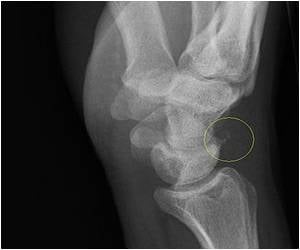Faith and a positive mind set play a significant role in healing process, according to a study conducted by the Arthritis Research Campaign
Faith and a positive mind set play a significant role in the healing process, according to a study conducted by the Arthritis Research Campaign.
During the experiment, pain was first induced in 40 volunteers using an artificial pain stimulus; they were later led to expect reduced pain after the application of a cream, which was actually a placebo.The results suggest : faith in a Doctor or a medicine leads to expectation of pain relief which leads to the release of endorphins, the brain's natural pain killers and hence the amount of faith and relief are related.
Lead researcher Alison Watson said: 'Any medical treatment involves a placebo element; the psychological suggestion that it is going to work. So, we theorized that a proportion of any treatment's effectiveness would relate to how much we wanted it to work, believed in it or trusted the person administering it.
'Doctors and nurses can transmit a lot of information about a treatment and its effectiveness through their words and gestures. We know that when people visit their preferred GP, the treatment or advice they receive will be more effective than that given by a GP they prefer not to see. Similarly, red pills have been shown to be more effective than green ones; so we wanted to test whether all this was due to expectations of successful treatment and trust in the person giving it.'
24 of the volunteers initially received a moderately painful heat stimulus to both arms. The placebo cream was then applied to the skin, but they were led to believe that the cream on one of their arms may be a local anaesthetic.
After the application of the cream, the intensity of the heat stimulus was turned down on one arm without informing the volunteer. Subsequently the intensity was returned to its previous level, but - in contrast to the 16 people in the control group - 67% of the treatment group continued to perceive the heat as less painful.
Advertisement
'Interestingly, there was an exact split in the range of responses to the placebo; a third of people reporting a reduction in the pain intensity in the 'treated' arm only, another third in both arms and the remainder's intensity-ratings not being influenced by the application of the cream. The different responses can be related to the different levels of pain relief the volunteers expected, which may have allowed their individual suggestibility to influence their assessment of the pain experience.
Advertisement
'It could also facilitate more effective clinical trial design, which could substantially reduce the costs of developing new pain killers for patients with conditions like cancer and arthritis.'
'A further, exciting possibility is that we could develop talking and drug-based therapies to enhance people's response to placebos. The experimental methods we're using will allow us to test out such possibilities as a method of treating pain.'
Source-Eurekalert
PRI/M






